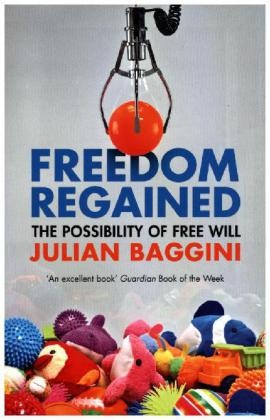Read more
Informationen zum Autor Julian Baggini is the founder of The Philosophers' Magazine . His books include Do You Think What You Think You Think? (with Jeremy Stangroom), What's It All About?: Philosophy and the Meaning of Life , the best-selling The Pig That Wants To Be Eaten, The Ego Trick and The Virtues of the Table, all published by Granta Books. He has written for numerous newspapers and magazines, as well as for the think tanks The Institute of Public Policy Research, Demos and Counterpoint. He has also appeared as a character in two Alexander McCall-Smith novels. His latest book, Freedom Regained , was published by Granta Books in 2015. His website is: www.microphilosophy.net Klappentext Do we have free will? It's a question that has puzzled philosophers and theologians for centuries and feeds into numerous political, social, and personal concerns. Are we products of our culture, or free agents within it? How much responsibility should we take for our actions? Are our neural pathways fixed early on by a mixture of nature and nurture, or is the possibility of comprehensive, intentional psychological change always open to us? What role does our brain play in the construction of free will, and how much scientific evidence is there for the existence of it? What exactly are we talking about when we talk about 'freedom' anyway?In this cogent and compelling book, Julian Baggini explores the concept of free will from every angle, blending philosophy, neuroscience, sociology and cognitive science. Freedom Regained brings the issues raised by the possibilities - and denials - of free will to vivid life, drawing on scientific research and fascinating encounters with expert witnesses, from artists to addicts, prisoners to dissidents. Contemporary thinking tells us that free will is an illusion, and Baggini challenges this position, providing instead a new, more positive understanding of our sense of personal freedom: a freedom worth having. Zusammenfassung A smart, engaging and thought-provoking exploration of the concept of free will, from one of Britain's most respected and popular philosophers....

